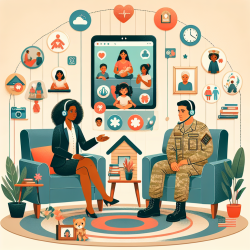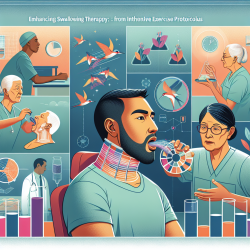In the evolving landscape of therapy and education, integrating trauma-informed practices into virtual home visits can significantly enhance the support provided to families, especially those connected to the military. A recent study titled "A Trauma-Informed, Family-Centered, Virtual Home Visiting Program for Young Children: One-Year Outcomes" highlights the positive impact of such interventions. This blog explores how practitioners can leverage these findings to improve their skills and outcomes.
The Power of Trauma-Informed Care
The study focused on Families OverComing Under Stress-Early Childhood (FOCUS-EC), a trauma-informed, family-centered preventive intervention delivered through a virtual telehealth platform. The program was designed to promote family resilience and well-being among military-connected families with young children.
The research demonstrated that FOCUS-EC families showed significant improvements in child behavior, parenting practices, and parent-child interactions compared to those who received only online education. Notably, there were also greater reductions in parent posttraumatic stress symptoms.
Implementing Trauma-Informed Strategies
Practitioners looking to enhance their skills can consider the following strategies based on the study's outcomes:
- Adopt a Family-Centered Approach: Tailor interventions to address the unique needs and goals of each family. This personalized approach can foster stronger relationships and better outcomes.
- Utilize Telehealth Platforms: Virtual delivery of interventions can overcome geographic barriers and increase accessibility for families who may face challenges attending in-person sessions.
- Focus on Parental Psychological Health: Addressing parents' mental health is crucial for improving overall family dynamics and child behavior. Incorporate psychoeducation and skills for managing trauma reminders into your practice.
- Enhance Parent-Child Interactions: Use observational measures to assess and improve parent-child relationships. This can provide objective data to guide interventions and track progress.
The Importance of Continued Research
The positive outcomes of the FOCUS-EC program underscore the potential benefits of trauma-informed virtual home visits. However, continued research is essential to refine these interventions further and expand their applicability across diverse populations.
If you're a practitioner eager to deepen your understanding or explore new methodologies, consider conducting further research or collaborating with experts in the field. Sharing insights and experiences through professional networks can also enhance your practice.










